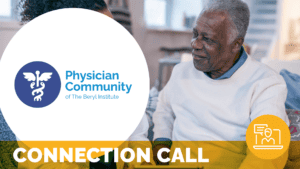Partnering with Patients and Families to Improve Outcomes

Chrissie Blackburn, MHA | Principal Advisor, Patient and Family Engagement, University Hospitals Health System
The webinar will provide a broad national overview, including University Hospitals’ Patient and Family Engagement program, and how UH works with their 175 patient family partners (PFPs) to improve outcomes in safety, quality and experience. It will also discuss UH’s interviewing and selection process, aligning PFPs with their passion, and how they participate on hospital committees, projects, and boards.
Related content
-
 Patient Family & Community Engagement
Patient Family & Community Engagement“Not Your Father’s Heart”: How Healthcare Discrimination for Neurodivergent Patients Taught Me About the Human Experience
It is easy to assume all patients who come into a hospital for acute crisis care have a clear understanding of how their experience will be facilitated. When a patient is neurodivergent, they cannot always agree to needed intervention. This is exacerbated by the “poor timing” of questions portrayed to impact the critical care received,
Learn more -
 Patient Family & Community Engagement
Patient Family & Community EngagementImproving Communication: Patient and Family Centered Rounds
Dr. Mikelle Key-Solle, Pediatric Hospitalist, covers five themes physicians should consider when interacting with caregivers of color and non-English-language-preferring families. These principles aim to improve communication during patient- and family-centered rounds at Duke Children’s Hospital and Health Center.
Learn more -
 Patient Family & Community Engagement
Patient Family & Community EngagementPrimary Care Productivity and Patient Satisfaction Community Practice: What is the Relationship?
Research has shown a consistent positive association between patient and provider experience and improved patient outcomes and safety. There is a belief that patient satisfaction and physician productivity are competing interests.
Learn more
